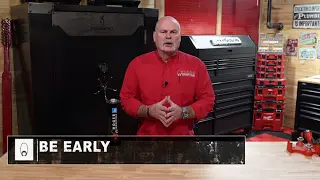If you’ve ever considered a career where you can work with your hands, solve problems daily, and enjoy strong job security, plumbing might be your calling. This skilled trade offers plenty of opportunities—from residential service and new construction to commercial and industrial work. And best of all, a professional plumber’s license is your ticket to stable employment, career advancement, and the potential to start your own business.
In this post, you’ll discover what it takes to become a licensed plumber, from understanding state regulations to deciding between trade school and on-the-job training. You’ll also learn about preparing for the crucial journeyman exam, the eventual leap to master plumber status, and how you can launch your own plumbing company when you’re ready. By the end, you’ll have a clear roadmap for entering and thriving in the plumbing profession.
Why Plumbing Is a Great Career Choice
Plumbers do more than just unclog drains. They play a critical role in public health, ensuring clean water supplies and safe sanitation. Plumbing also offers:
- Variety: Whether you prefer working in high-rise buildings or single-family homes, there’s a niche to fit your interests.
- Stability: Plumbing systems always need maintenance, repairs, and installation, regardless of the economy.
- Growth Potential: As your skills grow, so do your responsibilities and earnings. Journeyman and master plumbers can earn competitive wages.
- Hands-On Work: You’ll rarely be stuck at a desk. If you enjoy physical activity and problem-solving, you’ll be in your element.
If these benefits align with your career goals, it’s time to look at the steps required to become a licensed plumber.
1. Understand Your State’s Licensing Requirements
Because each state regulates plumbing differently, your first move is to identify the specific rules where you live. Some states have a single governing board (like Texas’s Texas State Board of Plumbing Examiners), while others have county or city authorities. Look up the “authority having jurisdiction” (AHJ) in your region to see which applications, fees, and exams you must complete.
Apprentice Registration
In many places, you can’t legally work on plumbing jobs without an apprentice registration card. This often requires:
- Filling out an application with the AHJ.
- Submitting documentation that you’re working under a licensed plumber or a company.
- Paying a registration fee.
If you’re in a state where apprentice registration is mandatory, make sure you follow that protocol. This step not only keeps you in legal compliance but also ensures your on-the-job hours count toward your eventual license.
Why It Matters
- Legitimacy: Working without the required apprentice registration could lead to fines or stalled career progress.
- Trackable Hours: Formal registration often requires your employer to report hours, which you’ll need when applying for your journeyman exam.
- Professionalism: Registering signals to employers that you’re serious about building a legitimate career.
2. Find the Right Apprenticeship
Most states require would-be plumbers to complete an apprenticeship under the supervision of a licensed plumber. This hands-on training is invaluable, allowing you to apply theoretical knowledge to real-world situations, refine your skills, and develop workplace discipline.
Tips for Securing an Apprenticeship
- Contact Local Companies: Identify plumbing companies in your area that specialize in the type of work you want—commercial, residential, new construction, or service—and ask if they’re taking on apprentices.
- Network in Trade Groups: Join social media groups focused on plumbing or trade skills, and attend any trade fairs in your region. You never know which master plumber or company owner might be looking for new talent.
- Tailor Your Approach: If you want to work in a big union shop, research local union halls. If you prefer a smaller family-owned business, reach out to those as well. Make it clear you know what you want—employers often look for apprentices with specific career ambitions.
Deciding on Commercial vs. Residential
- Commercial Plumbing: Involves large-scale construction projects like office buildings, schools, and industrial facilities. Often more structured, potentially unionized, and with well-defined career ladders.
- Residential Plumbing: Focuses on houses, apartments, and small multi-family dwellings. This often involves more customer interaction and service-oriented work.
Before you apply, consider which setting aligns best with your interests and career goals.
3. Trade School vs. On-the-Job Training
There’s no single path to becoming a plumber. You might take formal classes or jump straight into an apprenticeship. Often, a combination of both approaches works well, but each has its pros and cons.
Trade School Pros
- Structured Curriculum: Clear lessons on plumbing codes, blueprint reading, pipe fitting, and more.
- Formal Certifications: Many schools offer certificates that can help you stand out to employers.
- Faster Understanding: You’ll build theoretical knowledge quickly in a classroom setting.
Trade School Cons
- Tuition Costs: You pay to learn, sometimes while not earning any income.
- Less Immediate Hands-On: You might spend significant time in a classroom before touching real pipes.
On-the-Job Training Pros
- Immediate Hands-On Experience: Start working with tools, materials, and real plumbing systems from day one.
- Paid Learning: Earn an income as you develop your skills.
- Real-World Knowledge: Interacting with actual job sites, customers, and experienced plumbers.
On-the-Job Training Cons
- Less Structured: If your employer doesn’t provide consistent training, you might miss certain fundamentals.
- Varied Quality of Mentors: Not all master plumbers are equally skilled at teaching.
Combining Both
If you join a union, for example, you’ll often work on-site during the day and attend night classes. This dual approach provides the best of both worlds—formal education plus immediate practical experience.
4. Prepare for the Journeyman Exam
After logging the required number of hours (which can range from a couple of thousand to several thousand, depending on your state), you’ll likely qualify to take the journeyman exam. This test usually covers:
- Plumbing Codes: You’ll need to demonstrate knowledge of the Uniform Plumbing Code or your state’s specific code.
- Pipe and Fitting Sizing: Understanding how to size water supply and drainage systems according to demand.
- Safety Regulations: Occupational safety rules, personal protective equipment, and job site best practices.
Study Tips
- Use a Study Guide: Search for recommended plumbing code handbooks and practice test materials.
- Join a Study Group: If you know other apprentices preparing for the exam, group study can keep you motivated and help clarify tricky topics.
- Create a Timeline: Don’t cram at the last minute. Study steadily over several weeks or months.
- Practice Exams: Time yourself, simulate exam conditions, and review mistakes thoroughly.
Test Day Preparation
- Arrive Early: Map out your route so you don’t stress about directions or traffic.
- Bring Proper Materials: Have valid photo ID, code books (if allowed), pencils, and a calculator.
- Stay Relaxed: Get a good night’s sleep, eat a balanced breakfast, and avoid excessive caffeine.
- Think Critically: Don’t rush. Use the process of elimination on multiple-choice questions, and double-check your calculations for mathematical problems.
5. Becoming a Master Plumber & Starting a Business
Once you’ve earned your journeyman license and accumulated enough experience—often an additional year or two under a licensed master plumber—you can choose to sit for the master plumber exam. Master plumbers have the authority to:
- Pull Permits: Legally handle major plumbing jobs requiring building permits.
- Hire Employees: Train and supervise apprentices or journeyman plumbers.
- Launch a Plumbing Business: Many see this as the ultimate goal for career independence and financial growth.
Steps to Starting Your Own Company
- Choose a Business Name: Make it memorable and relevant.
- Obtain Licenses and Insurance: Secure liability insurance, a surety bond if required, and any local permits.
- Set Up Business Processes: Bookkeeping, payroll, marketing, and scheduling systems are crucial.
- Market Your Services: A Google Business Profile, social media presence, and local advertising help the phone ring.
- Focus on Team Building: If you hire staff, create a positive work culture and invest in their professional growth.
What to Expect as an Owner
- Responsibility: You’re not only feeding your family but also supporting every employee’s livelihood.
- Financial Risk: Expect to invest in equipment, vehicles, and insurance before revenue starts flowing consistently.
- Increased Freedom: You set the business direction, choose which jobs to take, and have more control over your schedule.
Balancing Learning and Earning
As you progress through apprentice, journeyman, and then master plumber status, you’ll likely juggle hands-on work with ongoing education. The best plumbers never stop learning. Staying updated on new technologies, local codes, and innovative tools helps you stay competitive in a dynamic field. Consider attending:
- Industry Conferences and Trade Shows: Network with fellow professionals, see the latest products, and attend workshops.
- Continuing Education Courses: Required in many states to renew your license.
- Online Forums and YouTube Channels: Connect with others, troubleshoot unusual issues, and pick up new techniques.
Frequently Asked Questions (FAQs)
What’s the Typical Timeline to Become a Plumber?
In many states, it takes two to five years of documented work as an apprentice (often around 2,000 hours a year) to qualify for the journeyman exam. After a year or more as a journeyman, you might be eligible for the master plumber exam. The total timeline can vary but expect a multi-year commitment to reach the top levels.
Do I Need a High School Diploma or GED?
While not always mandatory, most reputable employers and apprenticeship programs require at least a high school diploma or GED. Basic math, reading, and problem-solving skills are crucial in plumbing.
Should I Specialize in a Particular Area?
Specializations can set you apart in the market. For instance, focusing on medical gas systems, backflow prevention, or green plumbing solutions might open higher-paying opportunities. However, it’s best to build a strong foundation in general plumbing before specializing.
Can I Transfer My License if I Move to Another State?
Some states have reciprocity agreements, making it easier to transfer your license. Others require you to retest according to their local codes. Always check the specific requirements of the state you’re moving to.
How Much Can I Earn?
Earnings vary by location, experience, and specialty. According to industry statistics, journeyman plumbers often make a comfortable living, with master plumbers and business owners typically earning even more, thanks to their additional responsibilities and expertise.
Overcoming Fears and Moving Forward
Launching a career in plumbing can feel daunting, but remember: every master plumber once started as an apprentice. The industry’s combination of practical skills, problem-solving, and customer interaction can be extremely rewarding. If you’re nervous about making the leap:
- Research Thoroughly: Check out local regulations, read about success stories, and watch tutorial videos to build confidence.
- Ask for Mentorship: Plumbers often enjoy helping newcomers. Seek guidance from a professional you respect.
- Plan Financially: Save up if you plan to attend a trade school or will take a few weeks off to study for exams.
- Stay Focused: Keep your end goal in mind—whether that’s earning a journeyman license, becoming a master plumber, or owning a thriving plumbing company.
Conclusion
Whether you aim to work for a local contractor, join a union, or eventually set up your own plumbing company, the core steps are similar: learn the rules, get the required experience, pass your exams, and keep advancing. The plumbing industry needs dedicated workers who are motivated to protect public health and deliver top-quality service. If that sounds like you, don’t hesitate—start exploring apprenticeships, training programs, and local regulations today.




